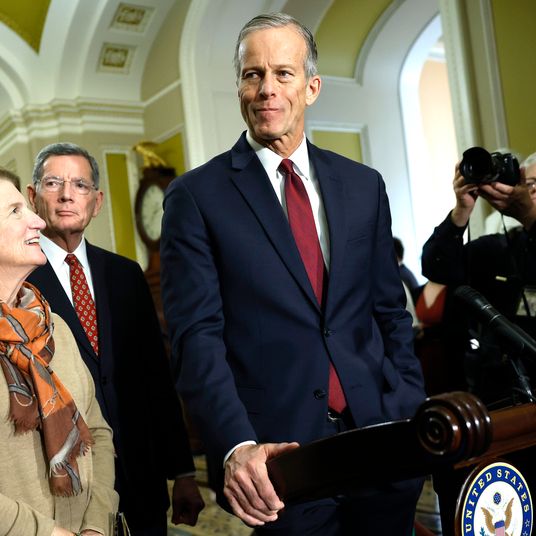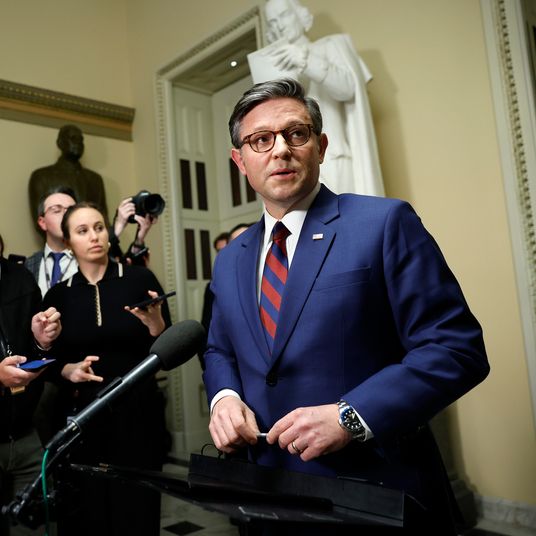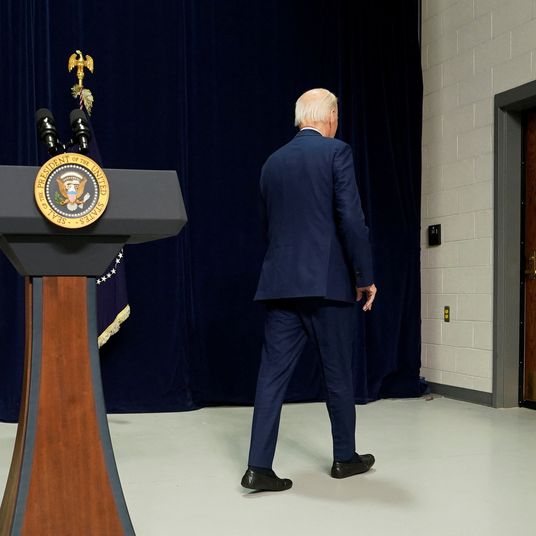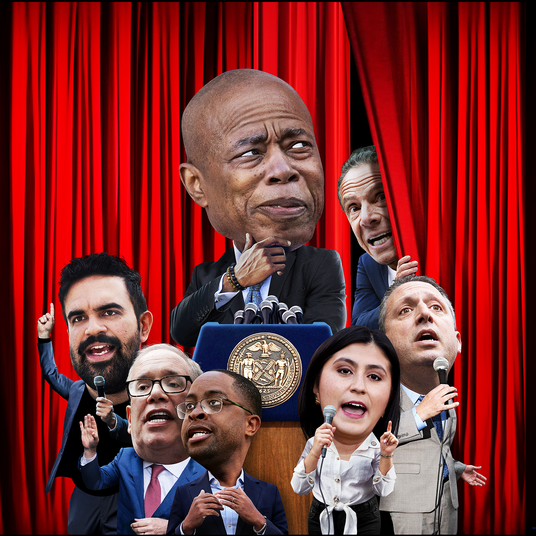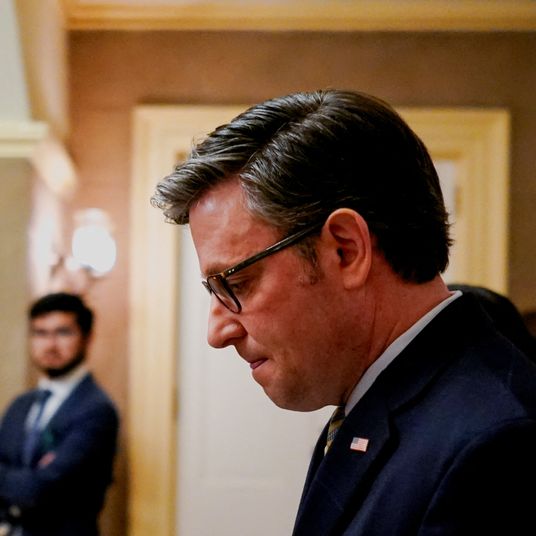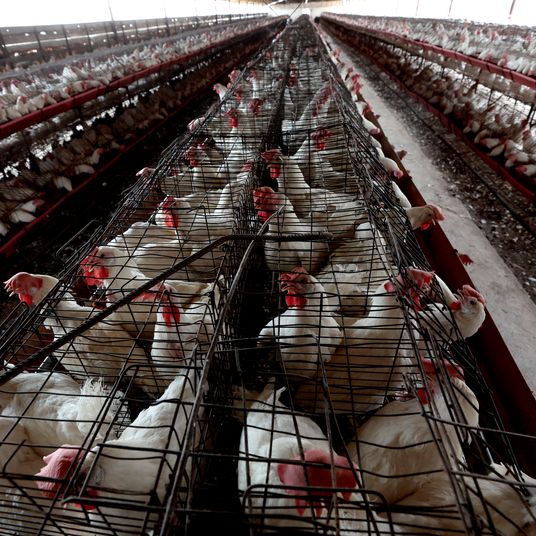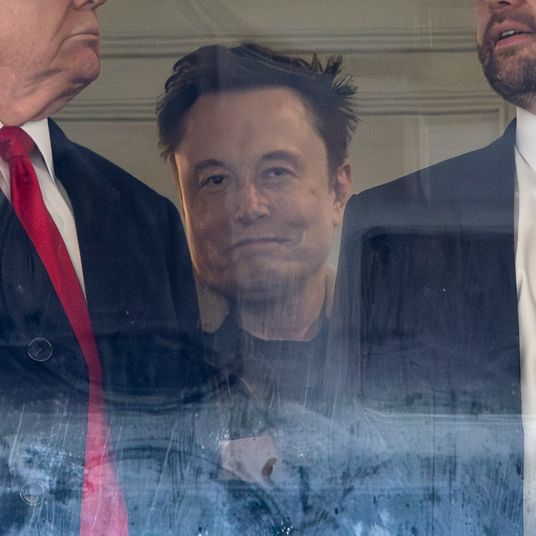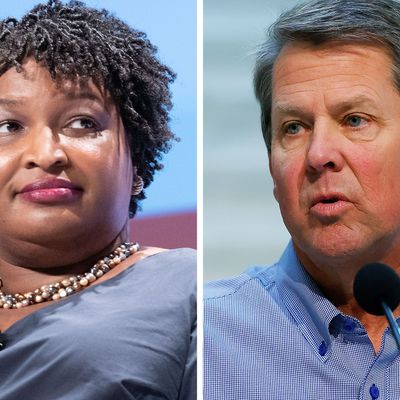
Everyone who knows former Georgia legislator and voting-rights activist Stacey Abrams will tell you there are two jobs she’s always dreamed of holding: becoming governor of her state, and president of her country. From that perspective, her lack of interest in making the 2020 Senate race that so many national Democrats wanted her to undertake wasn’t surprising at all. But nor was her flirtation with the idea of a 2020 presidential run, and nor is her current, very honest audition to become Joe Biden’s running mate, which represents the shortest available path to the top of the ticket for herself, perhaps as soon as 2024.
Maybe there will be a Biden-Abrams ticket this year. But if not, her own and her old adversary’s current high profiles could set the table for a rematch between Abrams and Brian Kemp in 2022 for the job she narrowly (and controversially) missed winning in 2018.
Kemp, whose coronavirus policies have been nearly as ignorantly erratic as the president’s, is presently in the midst of an extremely perilous gamble wherein he is risking a fresh wave of coronavirus infections and deaths due to premature reopening of Georgia businesses that managed to earn a rebuke from Trump. A recent Cygnal survey of Georgians commissioned by a Republican rival showed Kemp with an approval/disapproval rating of 43/52; 54 percent of respondents gave a thumbs-down to his handling of the pandemic. Kemp’s appointee as U.S. senator, Kelly Loeffler, appointed in no small part to fund Republican-coordinated campaigns this year and in 2022 (when Loeffler, in the unlikely case she wins the November special election, would be up for a full term), has been a human dumpster fire politically, generating constant negative media coverage (fanned by Republican as well as Democratic opponents) for apparent conflicts of interest involving her and her husband’s vast wealth and stock holdings.
It’s a long way until 2022, but you have to say Brian Kemp, who ran an abrasive, borderline-racist campaign in 2018 as a “politically incorrect conservative” who enjoyed offending people, doesn’t have the sort of personality that would lift him to a second term absent a strong performance as governor. And his dubious handling of COVID-19 has given Abrams all sorts of opportunities to gain local and national attention, completely aside from her veep aspirations. She’s taken advantage of it, too, as NBC News recently noted:
“There’s nothing about this that makes sense,” Abrams said in an interview on MSNBC’s “Morning Joe.” “The mayors of Atlanta, Albany and Savannah have all questioned the wisdom of doing this. And the fact is the governor didn’t consult with mayors before making this decision …”
“These jobs that are reopening, these businesses that are reopening, are going to force front-line workers back to work without having been tested, without having access to a health care system to help them if they are in need,” she said.
Trying to push a “false opening of the economy,” Abrams said, risks “putting more lives in danger.”
The political landscape in 2022 will certainly depend on what happens this November; if Abrams’s party loses, with or without her on the ticket, she’ll have the consolation of the midterm advantage the “out party” normally enjoys. She’ll also have had some more time to joust with Kemp and other Georgia Republicans over voter-registration rolls and other familiar issues, and figure out how to improve on her excellent 2018 turnout operation.
Any way you look at it, the immediate future looks challenging for Georgia, and promising for the politician who may become the first woman and African-American to serve as its governor — unless she happens to be otherwise occupied in Washington.










